I've received help here like none I've gotten before. The staff is understanding and compassionate, but they aren't going to let you get away with anything stupid. I've learned to be more independent, better at handling tough situations, and I've gained a lot of confidence i ...
About Spruce Mountain Inn
They’re just 10 minutes from Montpelier and close to the Winooski River. That means you can either go into town during community events and start reforming social bonds with your peers, or you can go along nature walks and enjoy the outdoors. Even though the priority is to recover from substance abuse, you can still have fun while healing your body, mind, and soul.
Once you sign up, you’ll focus on building life skills. They also provide guidance with school, work, and living a healthy life in addition to therapy. They have a 2:1 staff to client ratio, so you’ll get a lot of personal attention.
Residents spend a minimum of 30 hours each week in therapy. Treatment may include cognitive behavioral therapy, eye movement desensitization and reprocessing, and act and commitment therapy. Intensive counseling is offered during the day or evening to accommodate those with various work and home responsibilities.
Group therapy is at the center of the treatment program. If you’re working on substance use, there’s the Psycho-Education Group. You’ll learn how dopamine shapes behavior and how substances affect mental health. This group also covers spotting addiction that doesn’t have to be related to drugs. This can include online gaming or internet addiction. You’ll also get to join the weekly Living Sober Group or 12 Step meetings.
Art play a role in your healing. Activities like painting, music, and sculpture are proven to help people express feelings that might be hard to put into words. Attending their studio workshops provide opportunities to explore your creativity and connect with others.
Setting up a payment schedule can be a little tricky. It’s important to note that the center doesn’t bill insurance directly, so you’ll need to take care of that yourself. They also don’t offer financial assistance. This means that you’ll need to make sure you can cover the cost of treatment on your own in case you have to pay out of pocket. Speak to your insurer to see if they have any out of network benefits.
Latest Reviews
Rehab Score
Gallery
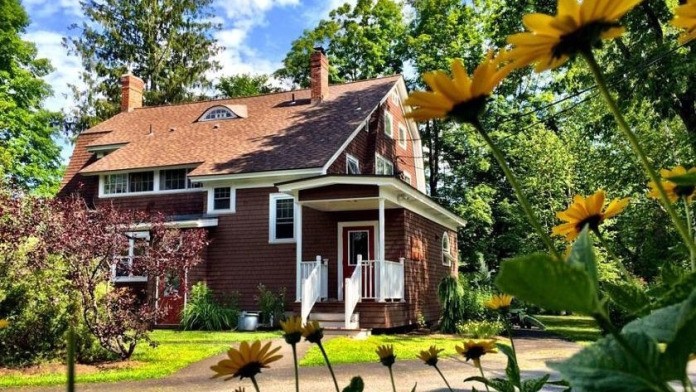


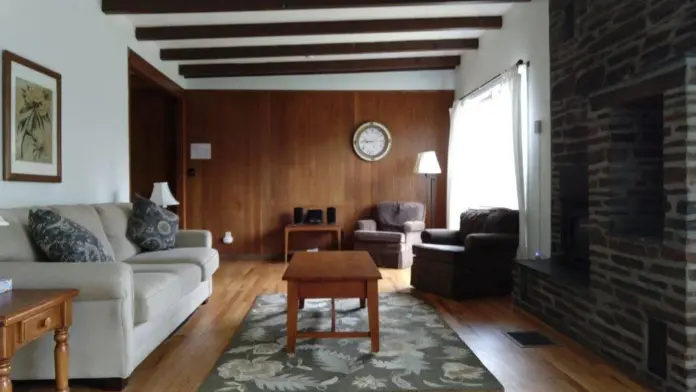
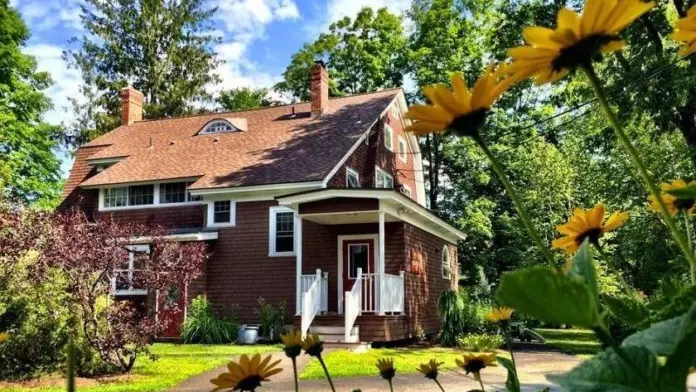
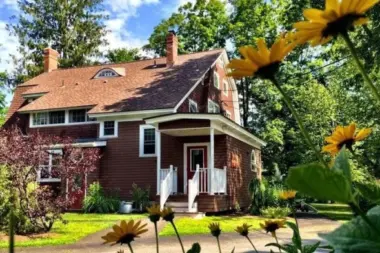


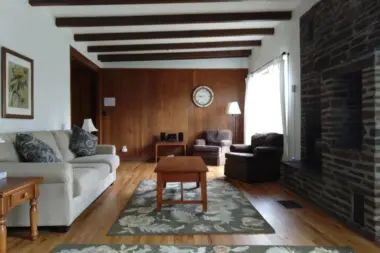
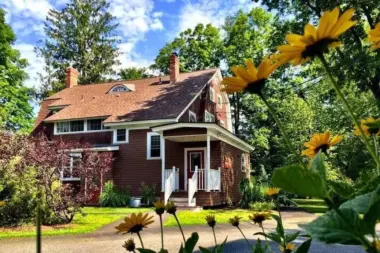
Other Forms of Payment
Private insurance refers to any kind of healthcare coverage that isn't from the state or federal government. This includes individual and family plans offered by an employer or purchased from the Insurance Marketplace. Every plan will have different requirements and out of pocket costs so be sure to get the full details before you start treatment.
Self-pay involves paying for treatment out of your own pocket. You can use savings or credit, get a personal loan, or receive help from family and friends to fund your treatment. If you don't have insurance or your insurance plan doesn't cover a specific program, self-pay can help ensure you still get the care you need.
Addiction Treatments
Levels of Care
Residential treatment programs are those that offer housing and meals in addition to substance abuse treatment. Rehab facilities that offer residential treatment allow patients to focus solely on recovery, in an environment totally separate from their lives. Some rehab centers specialize in short-term residential treatment (a few days to a week or two), while others solely provide treatment on a long-term basis (several weeks to months). Some offer both, and tailor treatment to the patient's individual requirements.
12-step programs are addiction recovery models based on Alcoholics Anonymous (AA). A number of substance abuse programs (including some drug and alcohol rehab centers) use the 12 steps as a basis for treatment. Beginning steps involve admitting powerlessness over the addiction and creating a spiritual basis for recovery. Middle steps including making direct amends to those who've been hurt by the addiction, and the final step is to assist others in addiction recovery in the same way. 12-Step offshoots including Narcotics Anonymous (NA), Cocaine Anonymous (CA), Dual Recovery Anonymous (DRA), Sex and Love Addicts Anonymous (SLAA) and Gamblers Anonymous (GA).
Residents who have completed a successful period at The Inn can apply to progress along their housing continuum. Residents who have been making good progress and demonstrate readiness for increased independence can apply to transition to one of their three supported on-site Annex apartments. Residents living in The Annex continue to receive comprehensive treatment services and engage in programming, but have some added schedule flexibility, use of their own kitchen, increased access to their technology, etc. Residents at The Annex attend Transitions Group and Independent Living Seminars to gain extra support and skill building for living more independently.
When you enter 24-hour clinical care in Vermont, a medical team monitors your health and is on-site to intervene quickly if any severe withdrawal symptoms occur. Due to the nature of some drug withdrawals, life-threatening symptoms are possible, so this level of care is highly recommended during the detox process. This level of care also helps meet other medical needs, as well as provide mental and emotional support through professional counseling.
Medical detox is the process of weaning your body off addictive drugs like alcohol, benzodiazepines, or opioids, under the 24/7 care of medical professionals. Often the first step in the recovery process, medically assisted detox takes place in an inpatient setting, where you will be closely monitored to ensure your maximum health and safety. Medications, like Suboxone or Vivitrol, may be administered if needed to alleviate any potential withdrawal symptoms.
Treatments
The goal of treatment for alcoholism is abstinence. Those with poor social support, poor motivation, or psychiatric disorders tend to relapse within a few years of treatment. For these people, success is measured by longer periods of abstinence, reduced use of alcohol, better health, and improved social functioning. Recovery and Maintenance are usually based on 12 step programs and AA meetings.
A person with substance dependence can achieve recovery through drug rehab in Vermont. Professional staff provide a combination of interventions that are designed to help you attain and maintain abstinence from drugs.
A combined mental health and substance abuse rehab has the staff and resources available to handle individuals with both mental health and substance abuse issues. It can be challenging to determine where a specific symptom stems from (a mental health issue or an issue related to substance abuse), so mental health and substance abuse professionals are helpful in detangling symptoms and keeping treatment on track.
Programs
Adult rehab programs include therapies tailored to each client's specific needs, goals, and recovery progress. They are tailored to the specific challenges adult clients may face, including family and work pressures and commitments. From inpatient and residential treatment to various levels of outpatient services, there are many options available. Some facilities also help adults work through co-occurring conditions, like anxiety, that can accompany addiction.
Young adulthood can be an exciting, yet difficult, time of transition. Individuals in their late teens to mid-20s face unique stressors related to school, jobs, families, and social circles, which can lead to a rise in substance use. Rehab centers with dedicated young adult programs will include activities and amenities that cater to this age group, with an emphasis on specialized counseling, peer socialization, and ongoing aftercare.
Recovery is most successful when clients feel accepted and validated by their peers and treatment providers. Facilities that offer LGBTQ-inclusive programming are committed to creating a safe space where everyone can grow and recover without fear of judgment or discrimination. They will have dedicated policies in place to create a safe and supportive environment that fosters free expression.
Clinical Services
Cognitive Behavioral Therapy (CBT) is a therapy modality that focuses on the relationship between one's thoughts, feelings, and behaviors. It is used to establish and allow for healthy responses to thoughts and feelings (instead of unhealthy responses, like using drugs or alcohol). CBT has been proven effective for recovering addicts of all kinds, and is used to strengthen a patient's own self-awareness and ability to self-regulate. CBT allows individuals to monitor their own emotional state, become more adept at communicating with others, and manage stress without needing to engage in substance abuse.
Dialectical Behavior Therapy (DBT) is a modified form of Cognitive Behavioral Therapy (CBT), a treatment designed to help people understand and ultimately affect the relationship between their thoughts, feelings, and behaviors. DBT is often used for individuals who struggle with self-harm behaviors, such as self-mutilation (cutting) and suicidal thoughts, urges, or attempts. It has been proven clinically effective for those who struggle with out-of-control emotions and mental health illnesses like Borderline Personality Disorder.
Their expansive group curriculum is at the heart of Spruce Mountain Inn’s treatment model, and includes a carefully designed array of therapeutic process-oriented groups, psycho-education and skills-based programming, arts and experiential offerings, and movement and exercise groups. Group work is a necessary complement to individual treatment services in that it allows residents to work together with their peers on similar goals and to benefit from peer feedback and support.
All residents at Spruce Mountain Inn receive intensive individual treatment services during their stay from several clinical professionals who work as a multidisciplinary treatment team. Components of individual treatment include: clinical case management, individual psychotherapy, one-on-one support, psychiatric evaluation and individual meetings.
Trauma therapy addresses traumatic incidents from a client's past that are likely affecting their present-day experience. Trauma is often one of the primary triggers and potential causes of addiction, and can stem from child sexual abuse, domestic violence, having a parent with a mental illness, losing one or both parents at a young age, teenage or adult sexual assault, or any number of other factors. The purpose of trauma therapy is to allow a patient to process trauma and move through and past it, with the help of trained and compassionate mental health professionals.
Research clearly demonstrates that recovery is far more successful and sustainable when loved ones like family members participate in rehab and substance abuse treatment. Genetic factors may be at play when it comes to drug and alcohol addiction, as well as mental health issues. Family dynamics often play a critical role in addiction triggers, and if properly educated, family members can be a strong source of support when it comes to rehabilitation.
Spruce Mountain Inn recognizes the importance that employment and earning a living play in the transition to independence for young adults. Additionally, they believe that the sense of accomplishment and enjoyment that come from successful work experiences enhances well-being and can provide a foundation for increased self-esteem and recovery from mental health challenges. Through their Career Development program, clients are offered unique opportunities to gain skills as well as to increase self-esteem and personal autonomy. These opportunities range from the vocationally related components of the Life Skills Program at the Inn to volunteer placements and competitive community employment.
Spruce Mountain Inn’s in-house chef prepares fresh, nutritious meals with a focus on variety, wellness, and community. Meals typically feature local and seasonal produce, healthy proteins, salads and/or soup, and an assortment of side options. Residents and staff dine together in their dining room or common room, often eating outside when the weather is nice. Meals are served buffet style and are a time of community building at Spruce. In keeping with their focus on independent living skill development, all residents participate in Cooking Group in order to build or advance their cooking skills. Under the guidance of their chef, they will learn fundamentals of menu planning, food preparation and storage, knife skills, and a variety of cooking techniques.
Recreational therapy allows you to find joy and purpose within healthy activities that are typically not a part of your life while you are addicted. These can include group games, arts and crafts, and fitness programs that help promote relaxation, give you an outlet for your emotions, and reduce stress levels. These factors are essential for long term recovery.
Arts programming is woven into many aspects of treatment at Spruce Mountain due to their empirically-proven therapeutic and health benefits. In addition to structured group time, residents are strongly encouraged to make art & music independently as a method of self-expression, stress management, and creative personal exploration. Spruce Mountain’s main campus features a well-equipped art studio where residents may paint, draw, sculpt, build, or otherwise create art.
Experiential therapy is a form of therapy in which clients are encouraged to surface and work through subconscious issues by engaging in real-time experiences. Experiential therapy departs from traditional talk therapy by involving the body, and having clients engage in activities, movements, and physical and emotional expression. This can involve role-play or using props (which can include other people). Experiential therapy can help people process trauma, memories, and emotion quickly, deeply, and in a lasting fashion, leading to substantial and impactful healing.
Amenities
-
Gym
-
Yoga Studio
-
Residential Setting
-
Private Rooms
-
Hiking
Staff

Candace Beardsley, MSSW, LICSW
Founder

Bogie Foden, LICSW
Interim Director
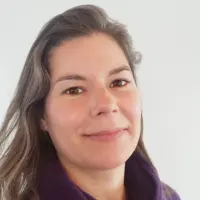
Karen O’Hara, LCMHC
Clinical Director

Smita Lahoti, MD
Psychiatrist

Jim Hessler, MSW, LISCW
Clinician

Pauline Morgan, BA, AS, RN
Medical Coordinator

Tom Novak, MBA
Career & Education Development Coordinator

Brad Beaudet, MA
Residential Counselor
Contact Information
155 Towne Avenue
Plainfield, VT 05667